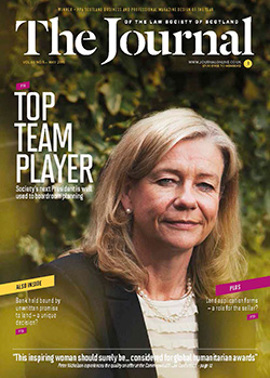Opinion: Mohammed Sabir

Recently, I acted in three cases involving marriages between EEA nationals and non-EEA nationals. The experience left me astonished. The shortcomings and injustices of the Home Office “marriage interview” became apparent very quickly. The Upper Tribunal earlier this year emphasised the importance of full disclosure by the Home Office, on whom rests the onus of proving that a marriage is a sham.
Usually, the starting and finishing point for disclosure is the refusal letter. It will contain a summary of “discrepancies” identified from answers during the marriage interview. The summary is not evidence, and insufficient in itself to prove the discrepancies alleged. It is only the interviewer’s own observations and selective understanding. It does not contain the few hundred answers where the parties are agreed.
The first of my three cases involved a Gambian husband and a Polish wife. The husband sought an EEA residence card. The interview at the Liverpool office comprised over 500 questions for the wife and 350 for the husband. During the wife’s interview, a senior caseworker asked questions pertaining to the parties’ sex life. This is prohibited by the European Commission Handbook (2014), which provides valuable guidance in investigations.
The Home Office resisted my repeated requests for full disclosure. A case management hearing rejected its argument that significant costs would be incurred in transcription and that being required to produce the audio recording would set a trend. A couple of days after the audio CD arrived, I received a further letter advising that the recording could not be found!
The recording also showed that the interviewer was dyslexic, revealing errors in the discrepancies identified in the refusal letter. The Home Office refused to provide information as to training undergone by the interviewer. Without the recording, it would have been very difficult to refute the discrepancies.
The parties were not cautioned before the interview. The Home Office has refused to provide me with the guidance available to its caseworkers, on the basis that it would lead to it being misused to evade and thwart “effective” immigration control.
There is no reason why procedural aspects at least should fall within the ambit of public policy and public security. Without a caution, is the Home Office entitled to rely on the contents of the statements? This is at odds with the right to a fair hearing.
In the second case, a Pakistani husband and Latvian wife had married in 2007. They held an EEA family permit; the husband had obtained an EEA residence card and was applying for a permanent residence card. At the termination of the marriage interview, he was detained as an overstayer and the wife was served with removal directions. The interviewer had disregarded both the permit and the residence card. After several hours, the husband was released. The removal directions were cancelled a few weeks later.
On my seeking full disclosure, the only response was one brief letter advising that the file, transcript and audio recordings could not be located. In the absence of disclosure, the immigration judge held that the decision-making process was unfair and allowed the appeals. The refusal letter was no substitute for full disclosure.
In the third case, a Ghanaian husband and Estonian wife married in 2014 after a successful appeal for an EEA residence card. Immediately thereafter, the parties were invited to interview. It was evident that the Home Office team were not pleased to see a legal representative. My question as to why the interview was taking place, given that the appeal based on durable relationship had succeeded, was not answered. In this case, I still await a copy of the audio recording.
The “marriage interview” displays an inherent lack of fair play. Disclosure appears to be deliberately withheld or excessively delayed. If practitioners do not persevere, this will have a drastic impact on the parties’ lives and their ability to present their case at appeal. The EC Handbook is an invaluable tool; but proper preparation for the interview is essential. Preparation for an appeal requires alleged discrepancies to be fully explained. But in addition, there has to be social and cultural understanding. Interviewers cannot substitute their own views and experiences and expect the parties to have acted and behaved likewise.
The couple should be advised of the importance of representation, even if costly. The damage that can be caused at interview may be irreparable. Significant time, cost and stress can be avoided if the parties have a representative well versed with their case. Delay in disclosure creates further issues.
It has become necessary to keep a tight rein on the Home Office to avoid falling into a system which has become inherently unjust.
In this issue
- Sham marriages v Sham interviews: which is the greater evil?
- A trusts law for the modern era?
- When cash just isn't good enough
- Un voyage en vaut la peine*: SYLA does France
- SYLA ends season on a high
- Appreciation: John Henderson
- Reading for pleasure
- Opinion: Mohammed Sabir
- Book reviews
- Profile
- President's column
- People on the move
- Application forms: should the seller adjust?
- When sharing matters
- After the launch
- Game of strategies
- Broken promises
- Charity legacies: the 10% conundrum
- Another "Whose money?" case
- Barrister barred
- Rearranging the family ties
- Belief in the system
- Living by the code
- The sky's the limit
- Unfinished business
- Law reform roundup
- Appreciation: Joseph Beltrami
- LBTT: what does it mean in practice?
- For those of a certain age
- Claims: trending?
- Ask Ash
- A man for all reasons
- The "TER approach"






